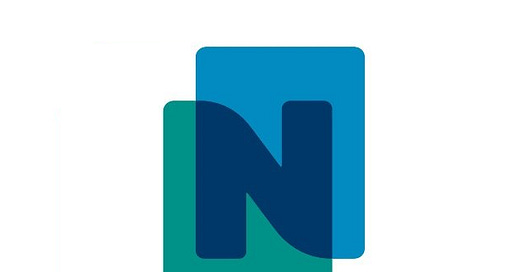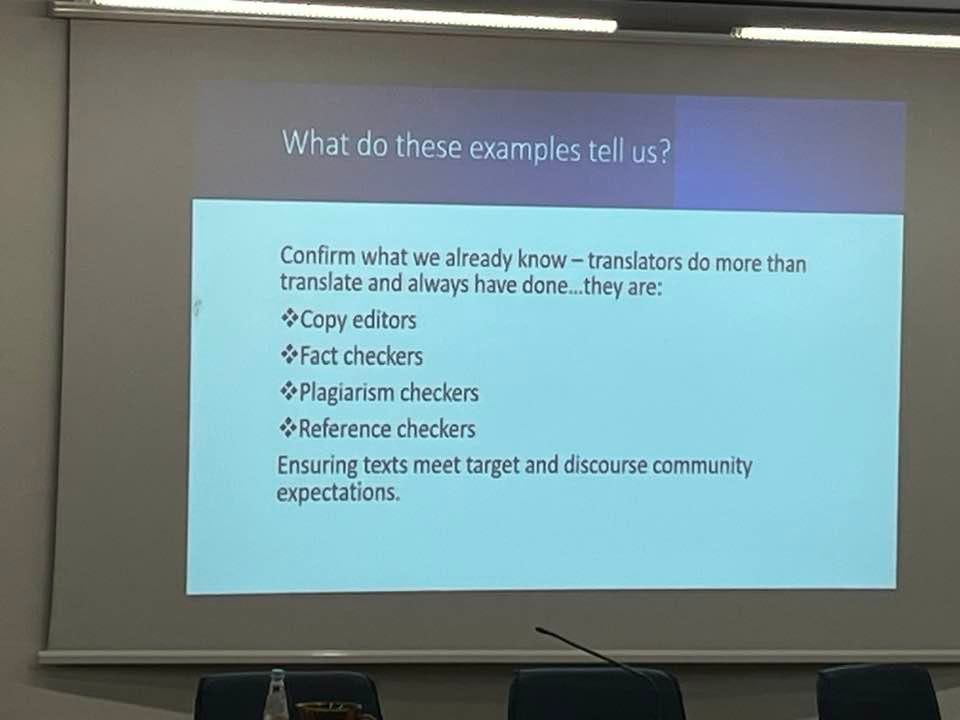New Voices, New Hopes
A memoQ academic summit and graduate student conference provided inspiration and new approaches to an old profession
The polyapocalyptic character of these past few months has thrown many off their stride, yours truly among them. There are, of course, the known major events of international politics, diverse natural disasters (the firestorms of California fortunately being controlled—so far—some 2 km from my childhood home), the fake news storm of “AI” driven by winds of greed, lazy Wunsch-Dir-was-zu-Weihnachten stupidity and dis- and malinformation. But we all have our personal eddies in the floodstream of tribulations, some of mine to do with pet mortality.
The friend who accompanied me to so many professional conferences as well as speaking and training engagements during my time in Germany, who also found a new life and love in Portugal twelve years ago, passed over the rainbow bridge a few weeks after his sixteenth birthday last October. I never expected the blessing of his companionship for so many years, nor when I made the unreasonable wish many years ago to have him with me for so long, as one colleague did with her dog of the same breed, did I ever expect it to be granted. Neither he nor the many human and animal friends who shared that time with us can be forgotten.
I had planned to be finished with my book on regex applications with memoQ last December, but the loss of Ajax, the transformation of my native land into an impending fascist hellscape, and complications of two cataract surgeries for my companheira which my years as a consultant and materials developer for medical devices in ophthalmology had led me not to expect have postponed that effort until my mind can focus properly again.
Great progress toward that recovery of concentration came last week, unexpectedly.
Late last summer I heard that my friends at memoQ Ltd. wanted to do an event in Lisbon and honor my friend and occasional instruction partner, David Hardisty, a Portuguese to English translator who was a professor teaching translation support technologies at Universidade Nova de Lisboa for many years. Then for a long time I heard nothing about that, because the e-mail address with which I was included in the planning correspondence is so heavily spammed that it is essentially useless for communication.
Two weeks ago, a mutual friend sent me a note asking if I would be at the memoQ Academic Summit. What summit?
So I made hurried plans to spend half a week in Benfica with my bantam chickens in Parque Silva Porto and attend the memoQ event and the graduate student New Voices in Translation conference on the two days following.
Those were delightful and unexpectedly rewarding days.
At the memoQ event, I got to see the training style of their new lead for education matters, Anna Mohácsi-Gorove, whom I found to be excellent and worth stealing ideas from. At the end of the day, Balazs Kis, one of the founders of Kilgray (the original company name for memoQ), gave one of the few honest presentations on AI and LLMs I have seen and can recommend.
I attended last year’s New Voices, as it coincided with a couple of memoQ courses at the university that I taught with English to Polish literary and technical translator and all-round memoQ master Marek Pawelec, and I found it very interesting, but this year’s symposium was levels above the last, and I left entertained and inspired by many of the superb talks in English and Portuguese by masters and Ph.D. candidates. The semiotic translation talks in particular fairly blew my mind with music and chess. If you want a good excuse to visit Lisbon in January during the semester break, this conference could be it.
The most delightful surprises at the conference were in sessions I expected little from and nearly skipped. I’m a history nut and thoroughly enjoyed the talk on Katherine Parr, the last of Henry VIII’s wives, who was quite the scholar and translator.
Semiotics is a field about which I know nothing, and I figured that session would be the pit of boring theoretical bullshit, but I tired of killing time with work in the university café and wandered in late to sit in the back with my noise cancelling AirPods to work on an upcoming terminology lecture, only to be captivated immediately by an unfamiliar genre of Brazilian music and presenter Daniel Galvão’s expert compositions and explanations. This was followed by Rui Pedro Almeida’s inspiring intersemiotic translation of a chess game into a short story with a multi-level exploration of translation units. You had to be there. He projected a move-by-move map of a centuries-old chess game while reading his unusual translation of it into a well-written short story.
One of the most inspiring presentations was given remotely from Brazil by Hariel Luis dos Santos on advertising translation, with an example of how a special campaign by Coca Cola transformed a slur against gays into a force for pride and inclusion. Esse Coca é Fanta doesn’t mean anything to those outside Brazil, but the video example showed brilliantly how additional content for context and subtitling can bridge that cultural gap.
The talk that related best to the situations faced by many professional translators today was the excellent lecture by medical English editor and writer and Portuguese to English translator Dra. Phillippa May Bennett, the title of which (Agents in translation and the Portuguese Journal of Cardiology: impact and beyond) seemed vague and unremarkable, but whose content was completely engaging and highly significant for understanding the real value skilled translation specialists can contribute.
She spoke about gatekeeping, a term often bearing negative connotations, and demonstrated its positive nature in the contributions of a lead translator in her study of cardiology research publication, where many errors were caught and corrected, and flawed papers were withdrawn in some cases as a result of the attentions of that knowledgeable professional. Many professional translators of long experience contribute similarly in their fields of specialty, catching errors of many kinds and identifying other deficiencies through careful background research. Too often there is little or no awareness of these valuable contributions, and by making explicit efforts to highlight these, perhaps progress can be made to help translation consumers understand the vital role of human expertise in ensuring effective, accurate transmission of information.
There were many more presentations of interest, and at the conclusion of the symposium I found an unexpected appreciation of how translation theory, something I’ve found of little practical value in over 20 years of commercial activity, can in fact serve as a catalyst of startling artistic creativity. And I saw surprising relevance to some of that artistry to the more sober work of scientific, legal and other translation I’ve done for so long as well as possibilities for many fun personal projects in the future.
Just the wind my sails needed.







